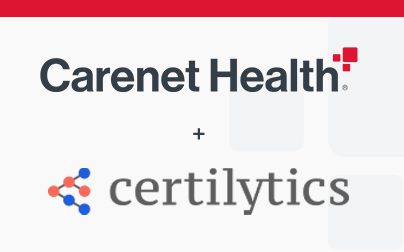If your healthcare organization is working to improve the consumer experience, an outstanding healthcare support center should be a high priority. Yet there are issues complicating that effort, such as:
- Hiring challenges for frontline support and licensed healthcare staff
- New consumer and end-user expectations
- Evolving digital technologies that require investment
- The heavy technology lift for remote, in-office and hybrid work
- Information security requirements
These factors are causing leaders to rethink whether they should build or restructure their own internal contact center or if they should work with a partner that can deliver a cost-effective support center.
This Build or Buy blog series aims to help you with the insource vs. outsource decision. In Part 1, we examined Accreditations and Certifications. Now, we take a look at training a high-quality customer support staff.
Part 2: Training considerations
In deciding whether to insource, outsource or co-source your healthcare consumer support, one thing to consider is that, if you were to partner with a healthcare customer service vendor, they would be responsible for designing, implementing, improving, refreshing and monitoring the effectiveness of staff training.
As you weigh your options, here are a few questions to think about:
- Does a high level of training matter to your organization for service and support team roles? Why or why not?
- Is your training department ready to provide the level of education and support necessary now and in your organization’s future to meet your goals?
- How will the level of training that service representatives receive impact your organization’s bottom line? Could it have a sizeable effect on satisfaction and revenue? (This is often a major concern for health plans and health systems, given the importance of CAHPS and CMS Stars programs.)
- Do you have the resources, or could you increase your resources, to train a new team quickly based on market and organizational demands?
- What would be the cost in time and money for your organization to train your support staff to the same high standards as those of an outside vendor who specializes in healthcare consumer engagement?
For further insight into how a high-quality healthcare support partner might handle training, let’s review some highlights of how training works at Carenet Health.
Specialized content and techniques
At Carenet, our healthcare customer service team members receive specialized training that goes well beyond software use and call scripts. For example, we train our support staff in motivational interviewing and empathy. With these competencies, our engagement staff are better able to help patients identify and achieve health goals.
We also train our staff in cultural, health-condition and age sensitivities. For example, if teams will be engaging with members who may have experienced a mental health issue, we train them on how to sensitively and effectively assist these patients.
Did you know Carenet Health has highly customized training modules for each type of population our support specialists serve—including Medicare and Medicaid plan members?
Carenet continually refines its training content based on best practices and knowledge we collect from more than 70,000 patient and health plan member interactions every day … for our over 250 exclusively healthcare clients.
We train healthcare specialists for both inbound and outbound customer service and support. Our team members not only learn how to effectively answer incoming calls and provide real-time assistance, but also how to execute outgoing communications relating to particular health initiatives or engagement campaigns.
Regardless of content, Carenet can extend flexibility in training within your system, a partner system or proprietary Carenet systems.
At Carenet Health, each new customer support team member receives, at minimum, training on:
- Program specifics + client organizational values and culture
- Population and related sensitivities (age, culture, health literacy)
- Empathy and how to convey it virtually and via multiple channels
- Technical/technology platform skills
- Consumer influence strategies, relationship-building and engagement/action triggers
All of this content development doesn’t happen in a vacuum. With a combined 50+ years of experience in global service and support, our training team have spent their careers refining the techniques and knowledge transfer models that work best.
Advanced tools and systems
Carenet Health’s healthcare services center training is delivered in a sophisticated, flexible way that emphasizes job immersion and spaced repetition.
For example, our leading-edge training platform recreates the screen interfaces that team members will be using during on the job. As such, patient service reps get to practice in a “sandbox” that delivers the same tools they’ll be using once they’re providing live assistance. Plus, our training involves simulations of calls and interactions in which our engagement specialists respond to defined scenarios and receive real-time, artificial intelligence (AI)-driven feedback. These practice calls are also recorded and shared with the individuals and their coaching staff, who then discuss opportunities for excellence.
Carenet’s training includes a variety of formats. Some of the content is self-paced, while some is instructor-led. We also included gamified quizzes and have a state-of-the-art training studio for virtual learning (80% of our frontline staff work remotely). This approach to training is much more engaging and effective than simply having to passively absorb lectured materials or read training manuals.
Healthcare consumer experience teams at Carenet Health even have the opportunity to attend and watch TED Talk-like videos as part of their training in customer service excellence.
Continuous learning and optimization
Customer support training should never be a once-and-done for new hires or even a periodic experience; it needs to be continuous for ongoing improvement. At Carenet, our training program includes rolling training opportunities and job aids that prompt teams on how to handle challenging tasks—to help refresh skills cyclically.
In addition, when process changes are needed, perhaps because of a change in a client’s procedure or software tool, our training platform can walk service staff through the transitions with detailed and engaging training, all developed by our internal and highly skilled team.
Finally, a robust training program like the one at Carenet should always include formal processes for optimization. Leaders should continually ask: How can we make this training more effective, more efficient? How can our learners absorb more and perform better, and progress faster? The goal is higher performance in decreased learning time.
Recent optimizations in Carenet Health’s healthcare customer service training programs have produced a 30% decrease in training time needed for engagement specialists, with no decrease in first 30-day work performance.
Choosing the best path to a superior healthcare consumer experience
All of the above-mentioned training development and technology costs money, of course. These are the kind of long-term business investments that a premier healthcare contact center would agree are important and necessary to support clients well. At Carenet, they are one of the prices we pay to produce the kind of results that help us stand out in the industry.
Can you build this type of sophistication in your internal training capabilities? Absolutely. The tradeoff will be in costs, time and staffing resources.
You also may be wondering if all these training solutions and innovations really matter. Couldn’t you instead simply aim for some basic standard of competency among your patient and health plan service teams and create a straightforward, conventional training program that achieves that? You could, of course, but there are risks.
You’ve likely experienced patient service or health plan support agents as a healthcare consumer yourself. Perhaps you’ve encountered an agent who couldn’t answer your question or who didn’t seem very empathetic to your concern. Or maybe they answered your question, but you felt rushed, or the representative lacked confidence in the information provided. Did that experience leave you wishing you had a different health insurance or provider?
When your healthcare support agents are effectively trained, they contribute to a superior experience with each touchpoint. And that superior consumer journey, can in turn, lead to improved outcomes and improved financial performance.
—-
Be sure to check back for new articles in this series. And please contact us if you have any questions.



